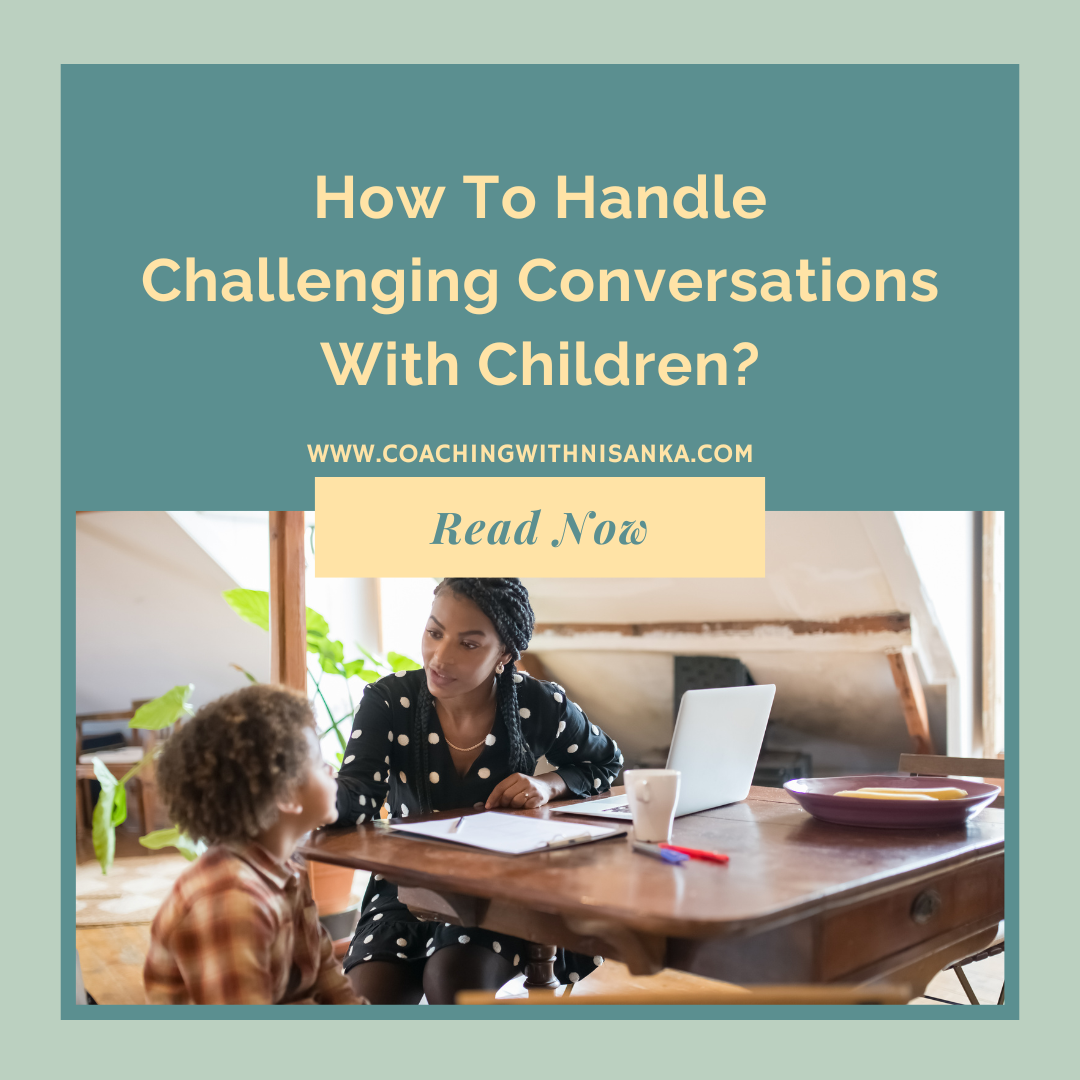How To Handle Challenging Conversations With Children?

We have a job as parents.
It's a difficult and demanding job, and we usually go into it with no training. Centuries ago, before capitalism, when we used to live in strongly knit communities, we had wise elders who took us through a rite of passage. During this journey, we were taught and shown how to face every stage of our lives. Not only that, we were held and supported by the community.
Children grew up receiving the love of aunts, uncles, siblings, cousins, and grandparents. That structure is completely gone. We are living in an isolated world, trying to do the job of a village alone. And the number of difficult conversations we will have to have with our children is going to increase, even if we are in a healthy parenting dynamic.
Add the co-parenting battle on top of that, where one person actively counter-parents and sabotages your relationship with your children.
Not only do you have no village to support you, but you are fighting a world just to protect your children.
But you are still here, standing strong, without having given up on your children.
Doesn't that say something about you?
It bloody well does! It says something about your grit, strength, and your love for your children.
So I have no doubt that you will ace the challenge of handling difficult conversations with your children too.
There are simple things that you can do to ensure that you handle difficult conversations without escalating:
1) Listen
Listen to understand your children. What are they actually saying? Their anger and outbursts have layers of meaning. Listen to them without reasoning.
2) Use a calming tone of voice
When you raise your voice, it becomes a perceived threat for the child who might already be in an agitated or anxious state. When there's a perceived threat, our body goes into fight-or-flight response. An angry or aggressive tone can trigger this response. This also means that your children's ability to reason gets shut down. To avoid that, use a firm but calming voice.
3) Regulate yourself
Your tone and words are not the only things that will trigger a trauma response in a child. Your energy does that too. If you bring in dysregulated energy, your children's hearts will detect it from a mile away. I am not asking you to walk on eggshells around your children. Take your time. Conversations can wait until we are ready to have them.
4) Ask for clarity
Ask open-ended questions. This will enable children to explain more without being led on.
"Can you tell me more?"
"How is that relevant?"
"What would you have liked in that situation?"
These questions not only make children feel like they are being listened to, but they also nurture critical thinking in them.
5) Don't personalize
Your children are NOT attacking you. Your children don't know how to navigate whatever struggles they have. So don't personalize their mean comments. It's not about you. And it's not always about the narcissistic parent either. Children go through many transitions in their lives, and they are bound to let this steam off, and it often lands on the parent they feel safest with. It sucks! I know :)
6) Praise them
Recognize your children for having their own minds. Praise them for wanting a challenging conversation. Give them the freedom to come back to you with challenging conversations. This is one of the best ways to nurture trust.
7) Respect is non-negotiable
Teach your children that disrespect is about control. The best way to teach this is to be a role model and respect your children. Show them how to handle difficult conversations without disrespect.
8) Be human
In some cases, you may burst into tears. It's painful to have difficult conversations with our children. These moments are saddled with fear, anxiety, worry, and vulnerability. Show your children that you are human too. Don't expect them to be your therapist. Do it in a child-friendly way.
9) Self-awareness
Raise your own self-awareness by understanding your own patterns. Pause and acknowledge your own patterns. Get professional help, journal, and be mindful of how to change them. When you engage in this process, your children will watch and learn too.
10) This is all about you
Counter-parenting from the narcissistic parent is cruel. There's no denying that. However, the relationship you have with your children is a matter that only you can manage. The behavior of the narcissistic co-parent must be managed through a parallel parenting strategy. Your relationship with your children is for you to choose.
Imagine this journey as an adventure. You have a rough idea of where you are going, but you don't have a map. You will have to discover it together. You will make many mistakes, and every mistake will lead you to strengthen your bond with your children
I send out weekly newsletters to my audience with tools and tips including EFT tapping videos and occasional offers. If you would like to receive, please sign up.
Thank you for subscribing!
Have a great day!
